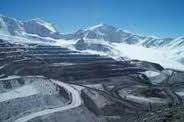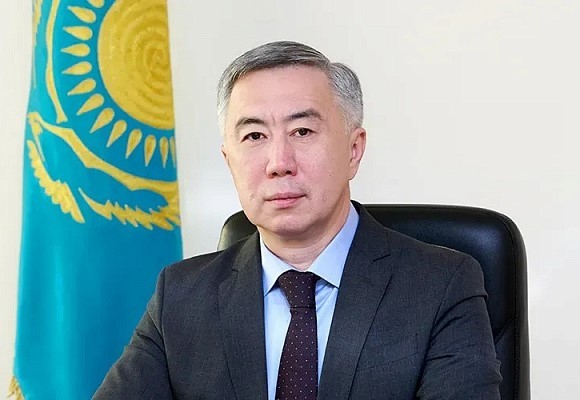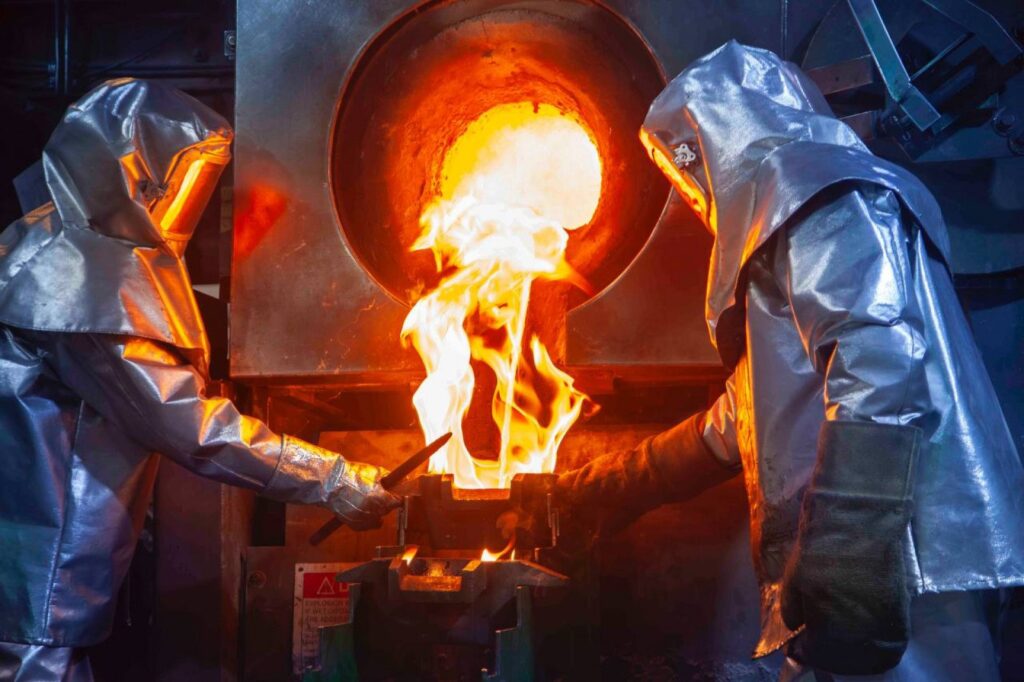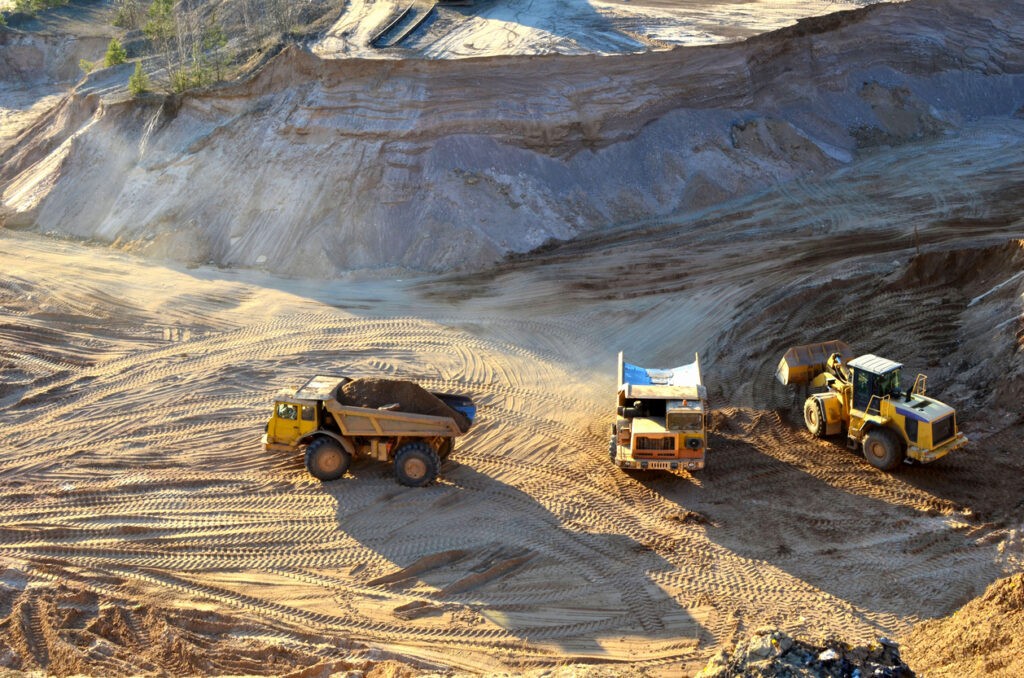BISHKEK (TCA) — Kyrgyzstan’s Parliament has approved amendments to the country’s Water Code which allow the development of Davydov and Lysyi glaciers at the country’s largest gold deposit, Kumtor. The amendments are necessary for the State Agency for Environmental Protection and Forestry to permit further work at the deposit.
The Government submitted the bill to the Parliament after Kyrgyzstan and Centerra Gold signed a new agreement on compliance with environmental standards in Kumtor’s development.
Kumtor, the largest gold mine in Central Asia, is located in Kyrgyzstan’s Tien Shan mountains. Canada-based Centerra owns 100% of the Kumtor mine through its wholly owned subsidiary Kumtor Gold Company. The Kyrgyz Republic holds 26.6% shares in Centerra through the state gold company KyrgyzAltyn.
Kyrgyzstan’s Government initiated amendments to the Water Code back in 2015 but under the pressure of society, the bill was withdrawn from Parliament. Civil society and environmentalists believe that the adoption of the document would legitimize the destruction of glaciers.
Debates on the problem continue so far, and the public has divided into two camps. Some consider the adoption of the law necessary for the economy of the country, while others advocate the environment protection.
Government’s arguments
Due to amendments to the Water Code, the Government will be able to raise an additional 12.7 billion Kyrgyz soms ($182 million) for the development of the country’s economy, said the then Deputy Prime Minister of Kyrgyzstan Duishenbek Zilaliev last week.
In the first nine months of 2017, Kumtor contributed more than 6.8 billion soms in taxes and mandatory payments to the national budget of Kyrgyzstan, and more than $238 million in 2016. Kyrgyzstan received $10 million annually as dividends from its shares in Centerra valued at $415 million, he said.
In addition, Kumtor will allocate a one-time $10 million payment for cancer treatment in the country. The company paid $310,000 for environmental damage annually but according to the recent agreement, the payment was increased to $3 million. Summing up all the money coming from Kumtor, 12.7 billion soms will be directed to the development of Kyrgyzstan’s economy.
When the document is signed by the President, Centerra will be able to conduct a full-scale development in the areas of the Davydov and Lysyi glaciers.
If Kumtor does not work, the glaciers will collapse into the quarry and the Government will have to clear it at its own expense, Zilaliyev explained.
According to Chairman of the State Committee for Industry, Energy and Subsoil Use Ulanbek Ryskulov, it is impossible to exclude the excavation of ice during mining operations, because the ice masses were deformed towards the quarry and are dangerous for mining operations. They need to be moved to protect the quarry and to maintain safe working conditions.
The Lysyi Glacier has been developed by 10% and it will be developed by 20% by the end of the mine operation, he added. The Davydov Glacier has been worked out at 45-50% (70% after completion).
In the future, the Environmental Protection Agency will not allow mining companies to develop glaciers, its director Rustamov said. Kyrgyzstan now has to implement the agreement on Kumtor concluded earlier with Centerra Gold. The agency recently sued Kumtor, and the Supreme Court of Kyrgyzstan decided that “the state authorities should take all necessary measures to ensure the smooth operation of the Kumtor project.” To execute the court decision, the Government had to amend the legislation.
Glaciers in Kyrgyzstan
Amendments to the Water Code allow the development of Kumtor’s Lusyi and Davydov glaciers only while the Ak-Shyirak glacial mass includes 152 glaciers. These glaciers are 0.3% of the total massif, said the author of the project on the modernized preservation of the Ala-Too glaciers and Toktogul reservoir, Anarbek Estebesov.
Kyrgyzstan can lose millions of dollars due to the discontent of people, he added. Kyrgyzstan is not a rich country to refuse from Kumtor’s money, he added.
Civil activists against the amendments
Civil activists, Government members, and MPs gathered last week to find a common solution but the meeting ended in a scandal.
According to environmentalists, the Kumtor deposit was not developed in Soviet times because that would be detrimental to the ecology of the country and the whole region.
The Government’s arguments that Kyrgyzstan could not receive budget revenues and some citizens would lose their jobs do not justify rash political decisions. The consequences of the destructive impact on nature will turn into an unrecoverable ecological catastrophe, they said.
According to ecologists, earlier the Davydov glacier’s volume was 720 million cubic meters, and it has decreased by 400 million cubic meters over the Kumtor operation. The situation with the Lysyi Glacier is also disturbing. However, some ecologists explain glacier retreat as a result of climate change, rather than mining activities.
MP from the Ata Meken opposition political party Natalya Nikitenko shares the view of the civil activists. The Parliament is legalizing past sins on Kumtor and continues lawlessness which took place before, she believes. There are all grounds for the public and civic activists to raise the acute problem of glaciers’ destruction, she said.
Civil activists held a rally to protest against the amendments to the Water Code and promised to collect signatures for the early dissolution of the Parliament. Activists believe that the bill will lead not only to the destruction of the glaciers but also have environmental consequences for all of Central Asia.
Lesson to learn
By supporting the amendments to the Water Code the Parliament created conditions to solve the situation with further exploitation of the Kumtor mine, the Association of Miners and Geologists of Kyrgyzstan said in a statement.
It was a compromise solution. The Davydov Glacier is moving, and this irreversible process began not today or yesterday. The current Government turned out to be a hostage of the decisions on the Kumtor project made in the 1990s and early 2000s, the Association said.
In 2009, the ratification of the Agreement on New Terms for the Kumtor project created a conflict with the national legislation of Kyrgyzstan. The current situation should become for all of us a great lesson to learn. From the very beginning of the Kumtor project, serious miscalculations and mistakes were made. The then leadership of the country made decisions behind closed doors, without public discussion and involvement of mining specialists.
The current Government and Parliament have assumed responsibility for ensuring the uninterrupted operation of the country’s largest enterprise, the association concluded.









